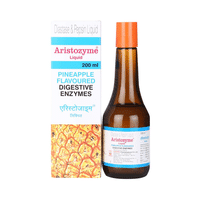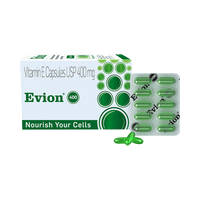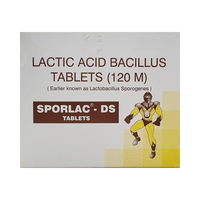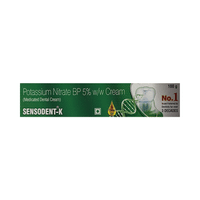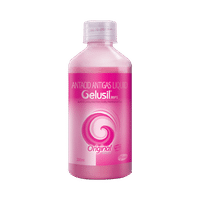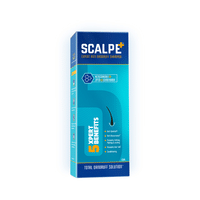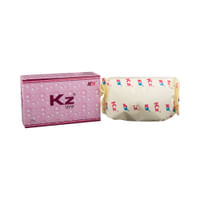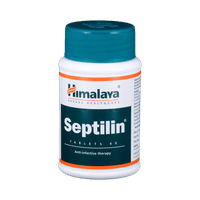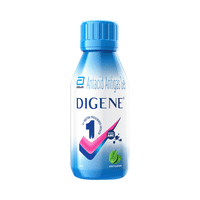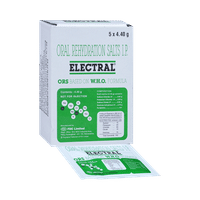Dermeze Cream
Rs.85.30for 1 tube(s) (15 gm Cream each)
food interaction for Dermeze
alcohol interaction for Dermeze
pregnancy interaction for Dermeze
lactation interaction for Dermeze
medicine interaction for Dermeze
food
alcohol
pregnancy
lactation
medicine
No interaction found/established
No interaction found/established
Information regarding the use of Dermeze Cream during pregnancy is not available. Please consult your doctor.
CONSULT YOUR DOCTOR
Information regarding the use of Dermeze Cream during breastfeeding is not available. Please consult your doctor.
CONSULT YOUR DOCTOR
No interaction found/established
SALT INFORMATION FOR Dermeze
Ketoconazole(2% w/w)
Uses
Ketoconazole is used in the treatment of fungal infections.
How it works
Ketoconazole is an antifungal medication. It kills and stops the growth of the fungi by destroying its cell membrane, thereby treating your skin infection.
Common side effects
Nausea, Headache, Dizziness, Vomiting, Weakness, Abdominal pain, Hair loss, Increased liver enzymes, Fever, Application site redness, Itching, Diarrhea, Abnormal liver function tests, Adrenal insufficiency, Application site burning, Red spots or bumps, Hypersensitivity, Hepatitis (viral infection of liver), Application site pustules, Acne
Clioquinol (Iodochlorhydroxyquin)(1% w/w)
Uses
Clioquinol (Iodochlorhydroxyquin) is used in the treatment of skin infections, fungal infections and bacterial infections of external ear.
How it works
Clioquinol belongs to a category of drugs called as hydroxyquinoline antifungal agents. It acts by interacting with DNA synthesis thus killing the fungi that are responsible for causing the infection. It may be combined with a steroid (to reduce inflammation) or an antibacterial agent (to reduce bacterial infection).
.Common side effects
Burning sensation, Itching, Rash, Skin swelling, Erythema (skin redness)
Tolnaftate(1% w/w)
Uses
Tolnaftate is used in the treatment of fungal skin infections.
How it works
Tolnaftate, an anti-fungal medicine. It prevents growth of fungal cell-wall. It also prevents forming fungal colony. This is how it causes death of fungi and relieves your infection.
Common side effects
Skin irritation
Neomycin(0.10% w/w)
Uses
Neomycin is used in the treatment of bacterial infections.
How it works
Neomycin is an antibiotic. It stops bacterial growth by preventing synthesis of essential proteins required by bacteria to carry out vital functions.
Common side effects
Application site reactions (burning, irritation, itching and redness)
Clobetasol(0.05% w/w)
Uses
Clobetasol is used in the treatment of allergic skin conditions.
How it works
Clobetasol is a steroid. It works by blocking the production of certain chemical messengers that make the skin red, swollen and itchy.
Common side effects
Skin atrophy, Telangiectasia, Skin irritation, Dry skin, Stretch marks, Cushing syndrome, Suppression of adrenal gland function, Posterior subcapsular cataract, Increased intraocular pressure, Skin rash, Scaling, Induration (hardening of a normally soft tissue or organ), Lichenification, Exacerbation of psoriasis, Plaque elevation, Excoriation
SUBSTITUTES FOR Dermeze
6 Substitutes
6 Substitutes
Sorted By
 Rs. 45save 49% more per gm of Cream
Rs. 45save 49% more per gm of Cream Rs. 85save 28% more per gm of Cream
Rs. 85save 28% more per gm of Cream Rs. 67save 24% more per gm of Cream
Rs. 67save 24% more per gm of Cream Rs. 95pay 8% more per gm of Cream
Rs. 95pay 8% more per gm of Cream Rs. 119pay 35% more per gm of Cream
Rs. 119pay 35% more per gm of Cream
Expert advice FOR Dermeze
- Your doctor has prescribed Ketoconazole to cure your infection and improve symptoms.
- Do not skip any doses and finish the full course of treatment even if you feel better.
- Take it with food, preferably at the same time every day.
- Do not take indigestion remedies (antacids) within two hours of taking Ketoconazole.
- Your doctor may check your liver function before starting treatment and regularly thereafter. Inform your doctor if you notice yellowing of eyes or skin, dark urine, or stomach pain.
- Inform your doctor if you are pregnant, planning pregnancy or breastfeeding.
- Inform your doctor if you experience an allergic reaction like skin rash, swelling of face and shortness of breath.
Frequently asked questions FOR Dermeze
Ketoconazole
Q. Can Ketoconazole prevent hair loss?
No, Ketoconazole does not prevent hair loss.
Clioquinol (Iodochlorhydroxyquin)
Q. What is clioquinol cream used for?
Clioquinol cream is used for treating skin infections such as eczema (itchy skin), athlete's foot (ringworm infection, a fungal infection of the foot), jock itch (fungal infection of the groin area) and other ringworm infections.
Tolnaftate
Q. Is Tolnaftate a steroid?
No, Tolnaftate is not a steroid. It is an antifungal medicine which is used to kill a wide variety of infection-causing fungus. It is applied on the affected skin or nails to treat fungal infections of the skin and nails.
Q. Is Tolnaftate effective?
Tolnaftate is effective if used in the dose and duration advised by your doctor. Do not stop taking it even if you see improvement in your condition. If you stop using Tolnaftate too early, the symptoms may return or worsen.
Q. How to use Tolnaftate?
First of all, make sure that the affected area is dry and properly cleaned before using Tolnaftate. Then, gently and thoroughly massage it into the skin. Be careful not to get the medication in your eyes or mouth. If Tolnaftate gets in your eyes accidentally, wash with plenty of water and call your doctor if your eyes are irritated.
Neomycin
Q. What is Neomycin? What is it used for?
Neomycin is an antibiotic used to treat bacterial skin infections. It may also be used to treat infected cuts and wounds. Neomycin stops the bacteria from growing, which helps to resolve the symptoms.
Q. Is Neomycin effective?
Neomycin is effective if used in the dose and duration advised by your doctor. Do not stop taking it even if you see improvement in your condition. If you stop using Neomycin too early, the symptoms may return or worsen.
Q. How to use Neomycin?
Before using Neomycin, clean and dry the affected area. Gently and thoroughly massage it into the skin. Be careful not to get the medication in your eyes or mouth. If Neomycin gets in your eyes accidentally, wash with plenty of water and call your doctor if your eyes are irritated.
Clobetasol
Q. Can Clobetasol be used for a long time?
No, Clobetasol should not be used for a long time. It is generally prescribed for 2 consecutive weeks only. However, the treatment can be longer for chronic (long-term) inflammatory conditions. Consult your physician before using this medication.
Q. Does Clobetasol cause severe skin reactions?
Severe skin reactions are quite rare with Clobetasol. Clobetasol is an anti-inflammatory drug which is used to treat skin diseases, skin reactions and eczemas. However, skin reactions can occur in a person who is hypersensitive to Clobetasol. It is important to leave the affected area open after applying Clobetasol as using occlusive dressings (air- and water-tight dressing) can lead to skin reactions. The medicine may not itself cause a reaction but the added excipients with the medications can lead to a reaction in some cases. Inform your doctor immediately in case you encounter any skin reactions.
Q. Can Clobetasol be used on the face?
No, Clobetasol should not be used on face. Along with that, its use should be avoided in other areas like the axillae (armpits), groin and if there is atrophy (wasting away of tissues) at the treatment site. However, in certain circumstances, the doctor may prescribe Clobetasol only when considered necessary. It should be used only after consultation with your physician. and if possible, the application on face should be limited to a maximum of 5 days.













